H U M A N R I G H T S
S T U D I E S @ U D
A N N U A L R E P O R T

20
24
The year in HRS@UD A growing program
Message from the Directors Looking ahead: 2024-25
Priorities 2023-24
01 05 03 07 02 06 04 08
Highlights
Experiential Learning Working Group results Acknowledgments
HumanRightsStudies— AnnualReport2024
TABLE OF CONTENTS
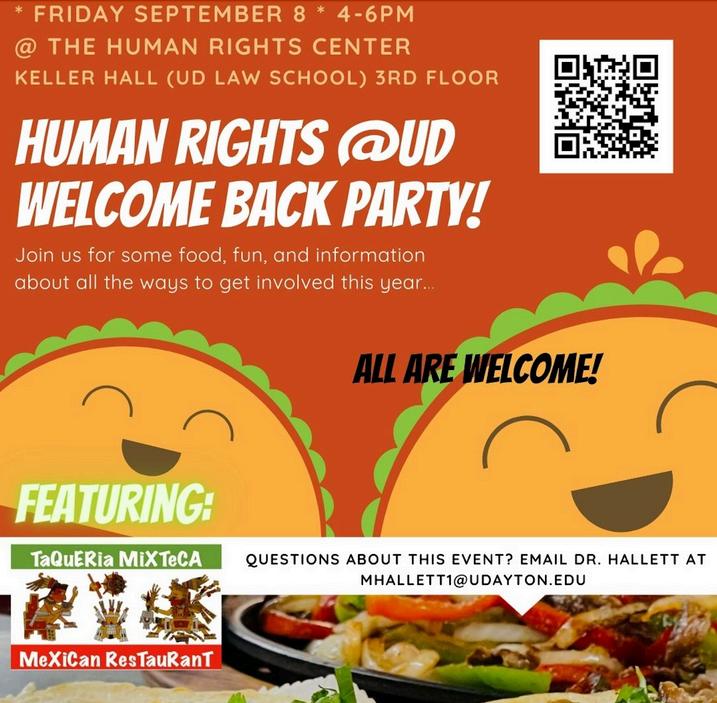
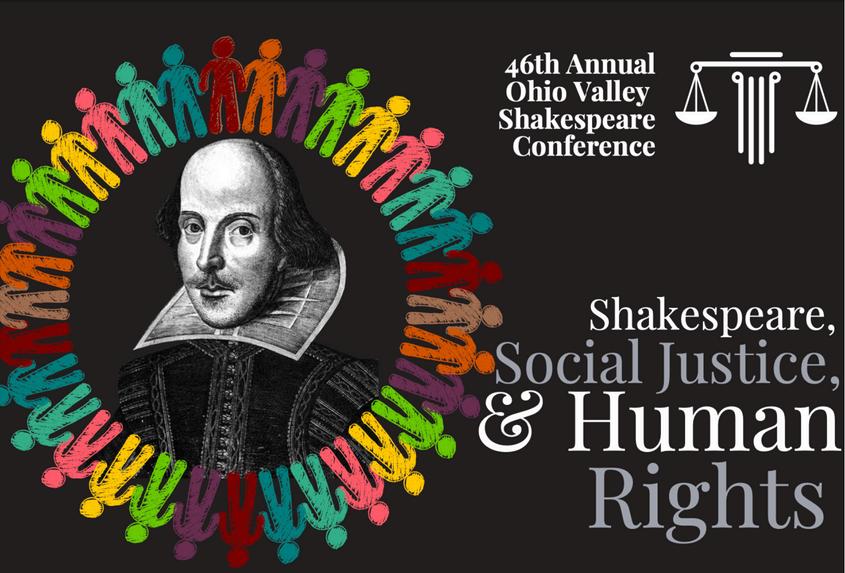
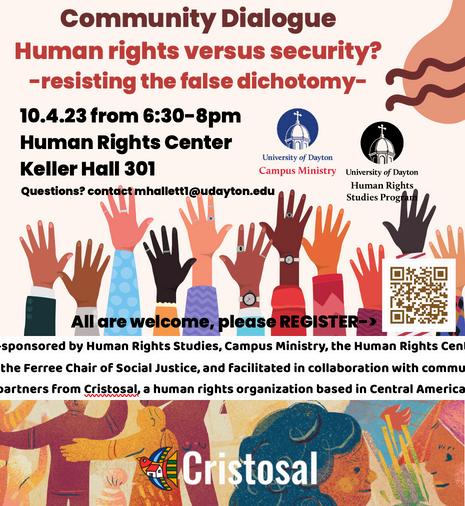
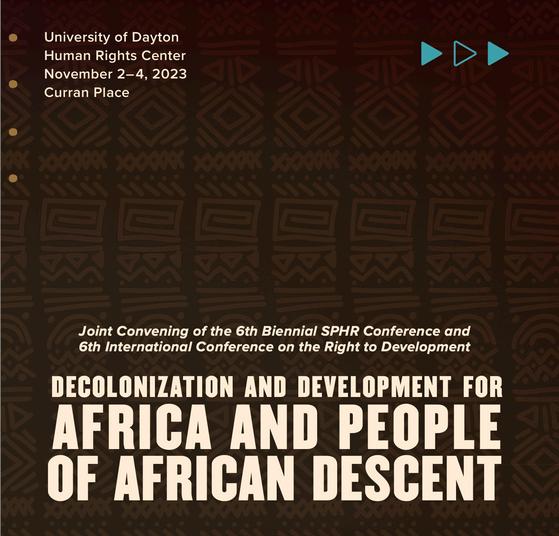

THE YEAR IN HRS

This was a year of growth and outreach for the Human Rights Studies program, as we launched new courses on everything from Geographic Information Systems to indigenous theory, contributed to the planning of two major conferences on campus-- one on Shakespeare and human rights, the other on the Right to Development for Africa and People of African Descent-- hosted human rights defenders from Cristosal on a Midwestern speaking tour, co-sponsored and organized three research lectures in collaboration with other disciplines and departments, held a public event to build empathy for refugee and immigrant families called the Immigration Simulation, planned and recruited for the student-driven ethical storytelling work of the Moral Courage Project, planned and recruited for multiple international faculty-led immersions and internships in cutting-edge human rights work, and with the support of our amazing young alumni, launched an HRS alumni mentoring network.
While our number of majors and minors is growing, and our students continue to engage in high-quality experiential learning at the Human Rights Center and beyond, equally important is the engagement and traction we are gaining across campus and in our community partnerships. Our strength is with our faculty and community partners, whose collaborations for social change drive the visibility and impact of our unique programs and learning opportunities.
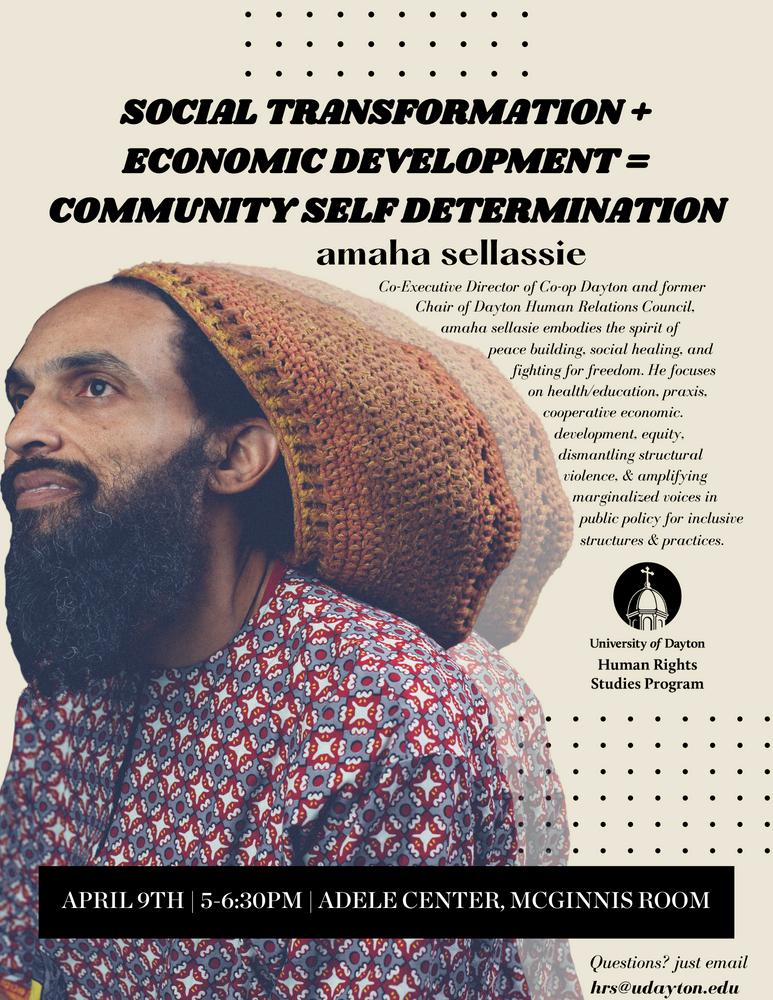
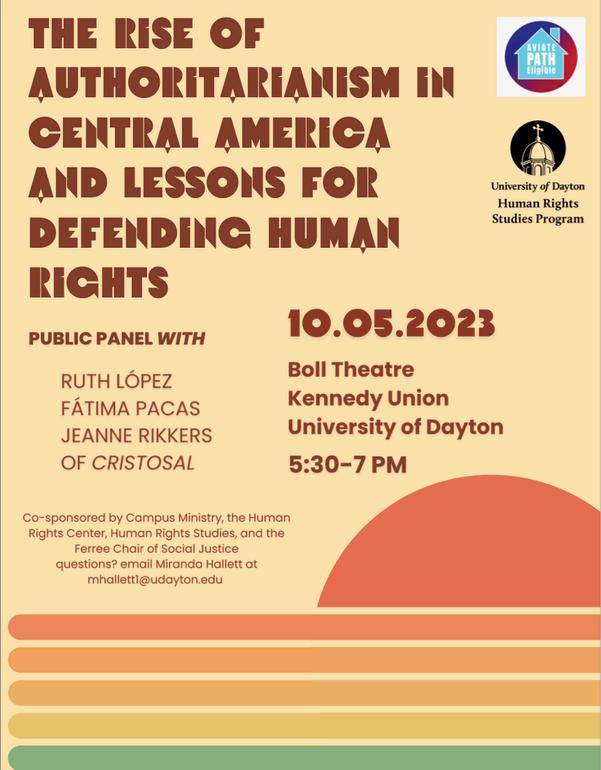
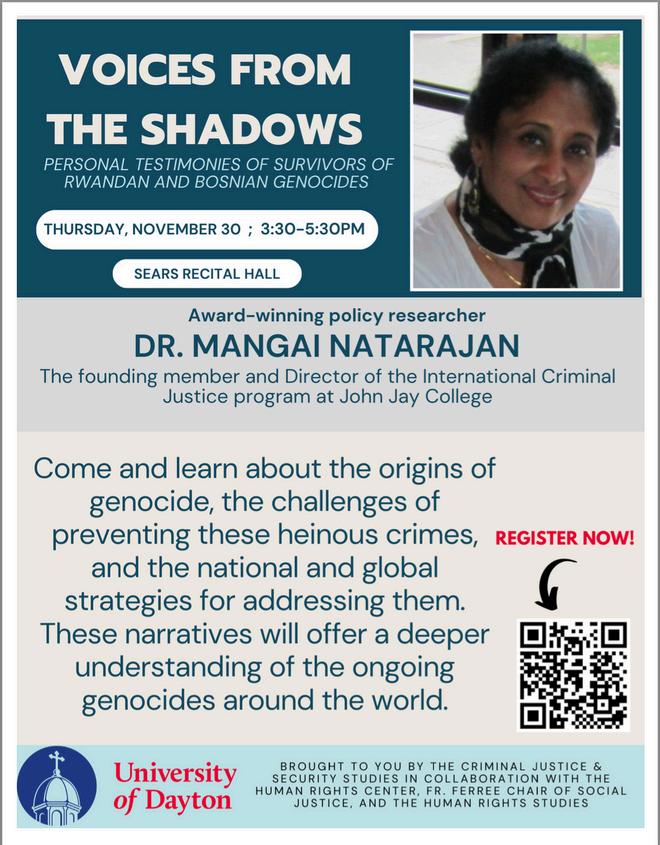

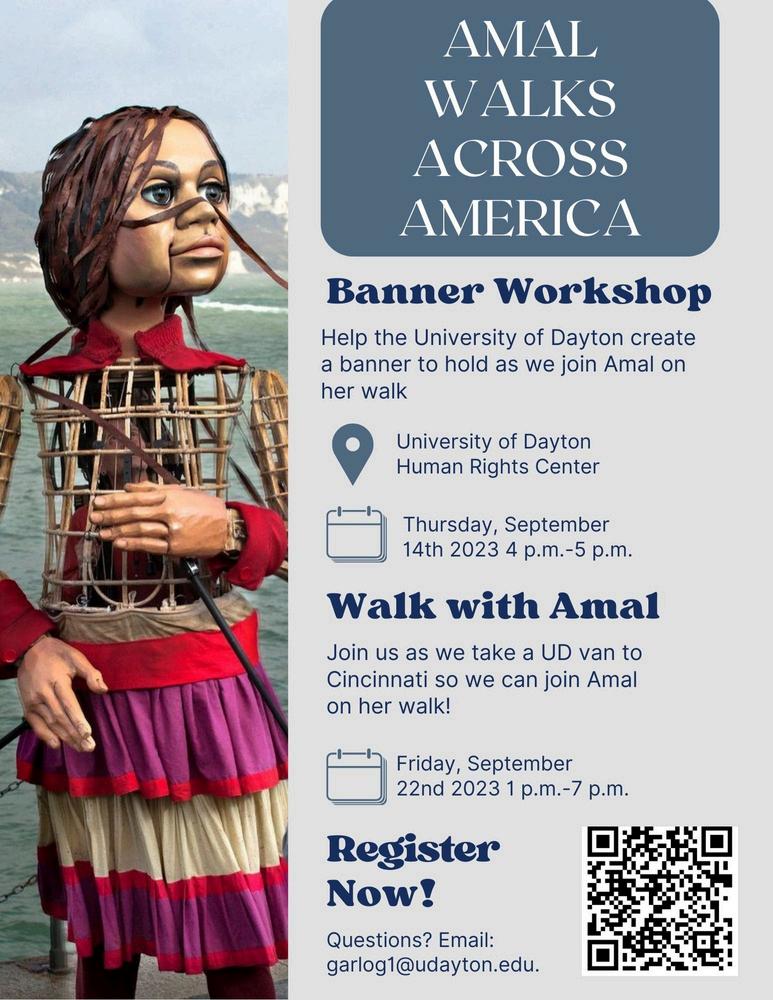
HumanRightsStudies — AnnualReport2024
MESSAGE FROM THE DIRECTORS
We’re tremendously proud of everything our students and our program team have achieved over the past year. Without a doubt, it has been a difficult time. Rising authoritarianism threatens democracy around the globe, impacting our partners’ efforts, our strategies and our hopes for change, and our own communities. The indiscriminate killing of civilians during armed conflicts fills our hearts, our conversations, and our media feeds with loss, trauma, and polarized perceptions. Questions of integrity and corruption cause conflict and disillusion in our local politics, as structures of inequality and differential opportunity continue to block pathways to human flourishing and collective wealth.
Yet, we persevere and unite in the face of doubt, and together we engage in a joyful practice of listening, learning, and social action, rooted in defiant hope for a shared future grounded in human rights principles. Thank you for walking this road with us, and we look forward to forging ahead together in the next academic year.
Affectionately, Miranda Hallett and Kirsten Mendoza
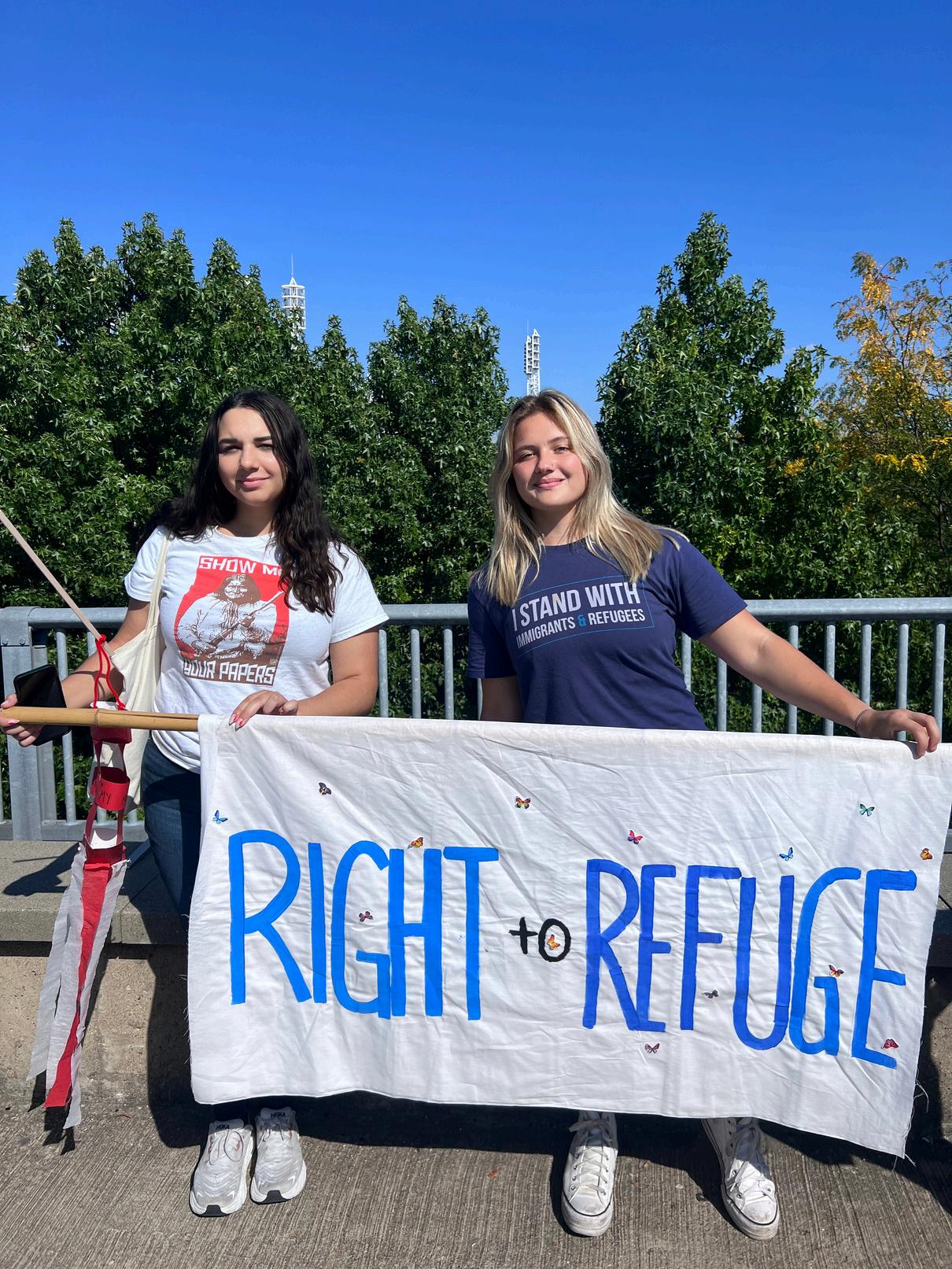
The strength of our program is found in the relationships between our team, students, and community partners.
HumanRightsStudies — AnnualReport2024
PRIORITIES 2023-4
Over the past academic year, we focused on three key priorities, outlined below.
01 — Grow the program: Generational renewal
We focused heavily on outreach this year, building our recruitment materials, visiting courses, engaging on admitted students days, and tabling at Kennedy Union. Majors and minors are up by over 20%.
02 — Deepen partnerships: North-South collaboration
Working with Central America-based organization Cristosal and local partners who work on immigrant and refugee issues, we helped to platform important public education events and dialogues that raised awareness of our partners’ key concerns and deepened our relationships, while engaging students as learners and advocates.
03 — Define and target: Experiential learning
We collaborated and dialogued with partners at the ETHOS Center, the School of Education, and the Office of Experiential Learning as well as convening an EL Working Group to assess and define EL for the HRS program (see next page).
HumanRightsStudies — AnnualReport2024
EXPERIENTIAL LEARNING WORKING GROUP
The Experiential Learning Working Group, made up of Dr. Patrick Ahern (Philosophy) and Dr. Theo Majka (Sociology) alongside Dr. Hallett (anthropology) and Dr. Mendoza (English), met in November and February.
We drafted a definition of the EL requirement in HRS, which was voted on and approved by the HRS Advisory Committee, as follows:
The Human Rights Studies Experiential Learning requirement is grounded in the HRS program’s emphasis on the connections between foundational human rights knowledge and practical application. The HRS major requires students to complete Experiential Learning that is significant, extensive, and supervised. Students must complete the HRS Experiential Learning pre-approval form prior to completing the EL to ensure that the EL satisfies the HRS program requirements. To satisfy the HRS Experiential Learning requirement, experiential learning should fulfill the following:
KEY ELEMENT
Is mentored and guided by faculty or community partners
Builds and stretches specific skills crucial to students’ future work
Exposes students to new dimensions of social difference and positionality
Requires students to advance/develop their theory of social change
Involves applied collaborative work that contributes to the common good
FOUNDATION
Require mentor’s signature on pre-experience approval form
Mentoring and advising to match students to experiences
Intentional partnerships across Global SouthGlobal North divide
Early coursework in Human Rights Studies defines/explores ToC
Intentional work plan constructed in partnership with faculty or community group
ASSESSMENT
Verbal check-ins with mentor; written assessment at close
Collect students’ resumes after the experience
Reflections and conversations in capstone course
Theory of change diagram in capstone course
Written assessment at the close of the experience
HumanRightsStudies — AnnualReport2024
Our focus on outreach has led to increased numbers of majors and minors, as well as solid enrollment in Human Rights Studies core courses and electives. Below is a quick look at the growth in numbers.
A GROWING PROGRAM
Our majors and minors are up by just over 20% compared to fall.
Our majors and minors are generally found by UD students after matriculation, making it especially important to share information about the program widely through events, courses, and other means. We count on affiliated faculty and existing students to serve as ambassadors, sharing about what the program has to offer in their networks and classrooms.
The minor in Human Rights in Engineering (HRE) shows steady growth, the major and minor numbers are consistent and healthy, and the program appears to be recovering from a slight decline in numbers during the pandemic.
of our students are double majors; disciplines include International Studies, English, Political Science, Sustainability, French, Psychology, Sociology, History, Communication, and Biology over 50%
Majors Minors HRE 0 5 10 15 20 25 September2023 May2024
HumanRightsStudies— AnnualReport2024
LOOKING AHEAD TO 2024-25
Over the coming year, our stewardship of the curriculum, our community partnerships, and our work with students will continue to align with the Human Rights Centers’ broader strategic goals of generational renewal, North-South partnerships, and innovating critical methods-- including pedagogical methods-- for human rights advocacy.
01
— Continue outreach and recruitment
New promotional materials show students how they can find their “pathway” through the program; we aim to distribute these and continue our focus on outreach through the next academic year. In addition, we plan student-facing events to highlight the interdisciplinarity of the program and its relevance for students with a broad range of interests.
02 — Support faculty scholarship and pedagogy
The program will emphasize faculty scholarship and pedagogical skills over the coming year. We may implement a pilot program for an interdisciplinary faculty colloquium on research related to human rights, primarily drawing on faculty from UD. Based on interest, we’ll convene a faculty & staff book discussion group on a short book titled “Building Community in Online Courses.”
03 — Revise the curriculum and newly link to CAP
HRS leadership have been in conversation with the Chairs of the Social Science departments and the Academic Senate, as well as the HRS Advisory Committee, regarding changes to the social science requirement in the Common Academic Program and the role of HRS 200. We will continue to discuss and make advised changes to the curriculum in this regard, and conduct a general assessment of other edits needed.
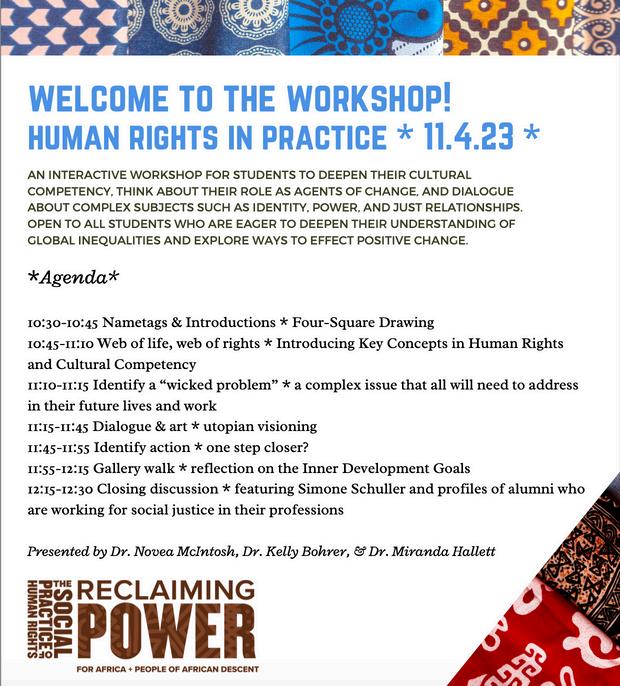
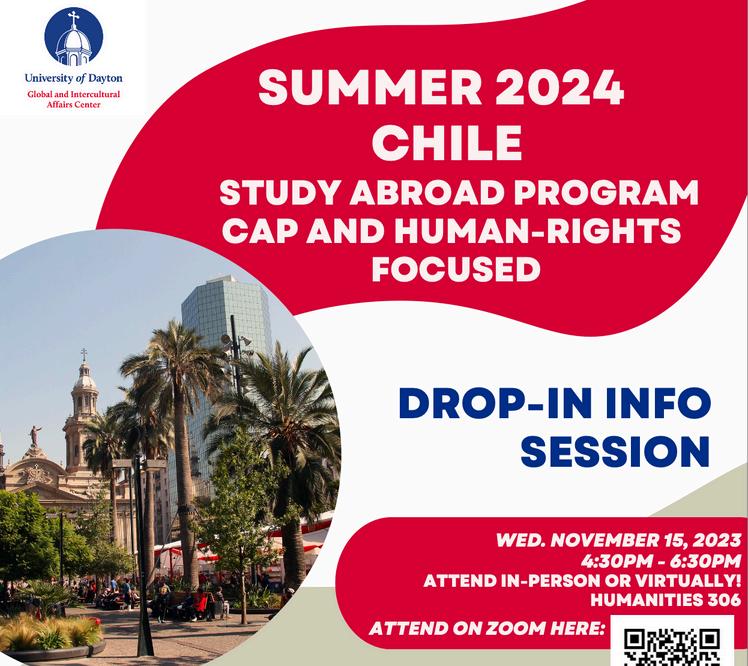
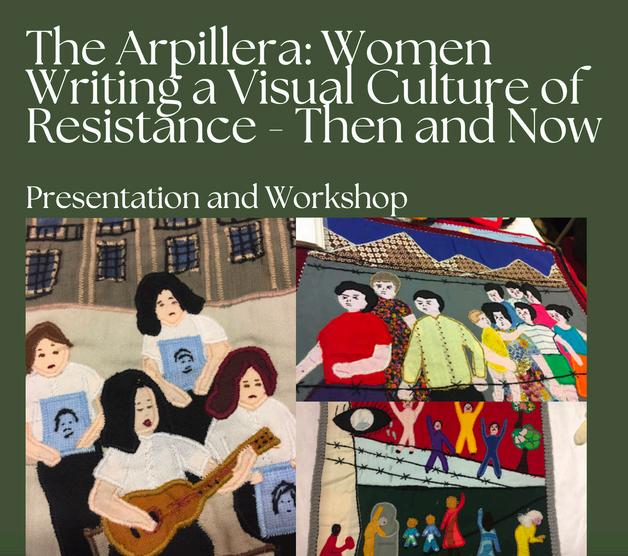



HumanRightsStudies — AnnualReport2024
CONCLUSION
As we look back on the highlights of this past year, we consider three consistent characteristics of our program.
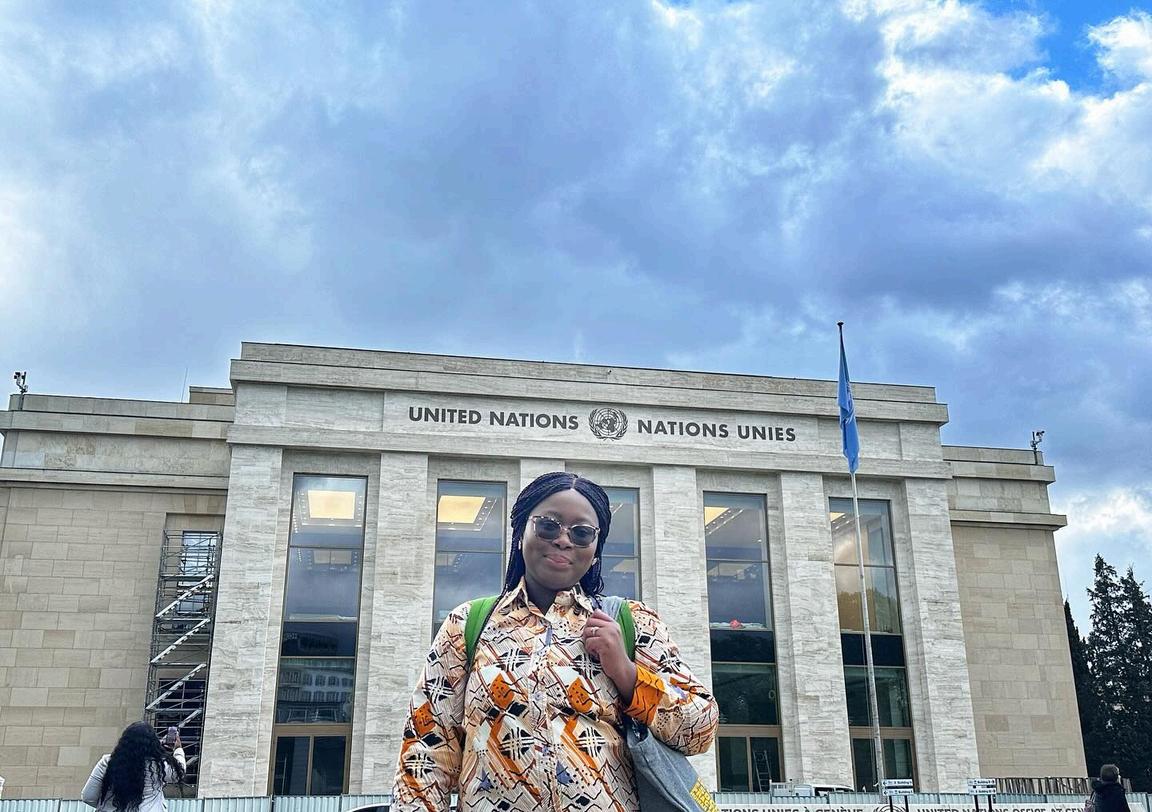
CONTRIBUTIONS TO SCHOLARSHIP & SOCIAL ACTION
Faculty- with student collaboration- hosted conferences, organized panels, published books and reports, testified and provided evidence in courts and at the UN on human rights issues, spoke to media, and presented their research on three continents.


INNOVATIVE TEACHING
Faculty in Human Rights Studies teach both Experiential and Community Engaged Learning, mentor research, and lead student teams in cultural immersions, internships, practica, and fieldwork in the US, Latin America, and Africa.
ACADEMIC EXCELLENCE
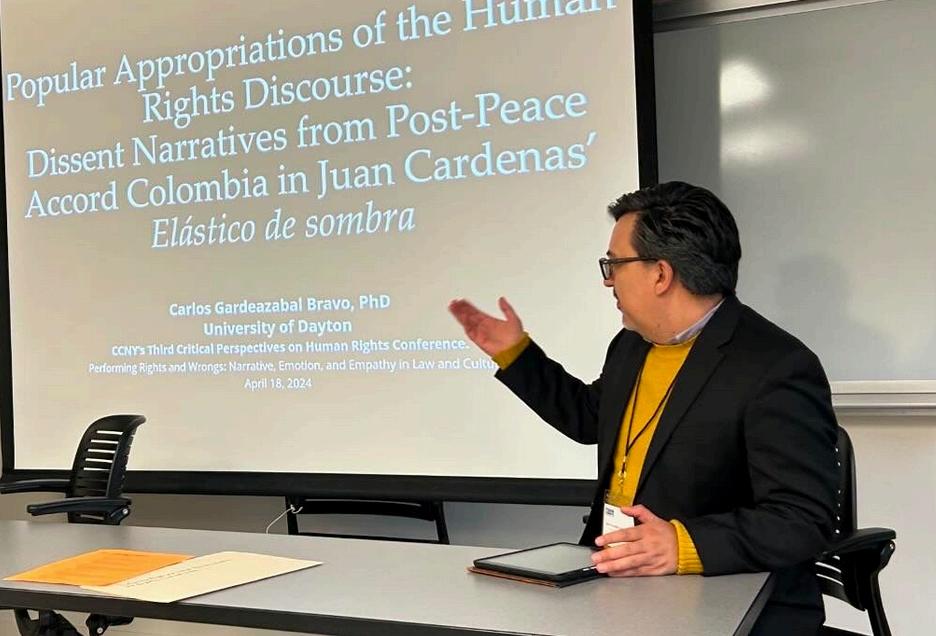

Faculty and invited visitors are at the top of their fields. The vast majority of students in the program are working towards a double major or multiple minors while maintaining a high GPA. Recent alumni have entered graduate programs at top schools like the University of Chicago, Loyola University, the University of California, and Queens University Belfast.
HumanRightsStudies — AnnualReport2024
ACKNOWLEDGEMENTS
On behalf of the program, Dr. Mendoza and Dr. Hallett would like to thank:
Tonda Mingus, HRC and HRS Administrative Coordinator
KinsLeigh Jones, Undergraduate Program Assistant for HRS
The Human Rights Studies Advisory Committee
The Experiential Learning Working Group
Faculty affiliates and instructors in Human Rights Studies
The entire team of faculty, staff, and students at the Human Rights Center
Our other partners and collaborators from campus and beyond
Miranda Hallett, PhD
Director Contact
Kirsten Mendoza, PhD
Associate Director
Human Rights Studies
328 Keller Hall
hrs@udayton.edu
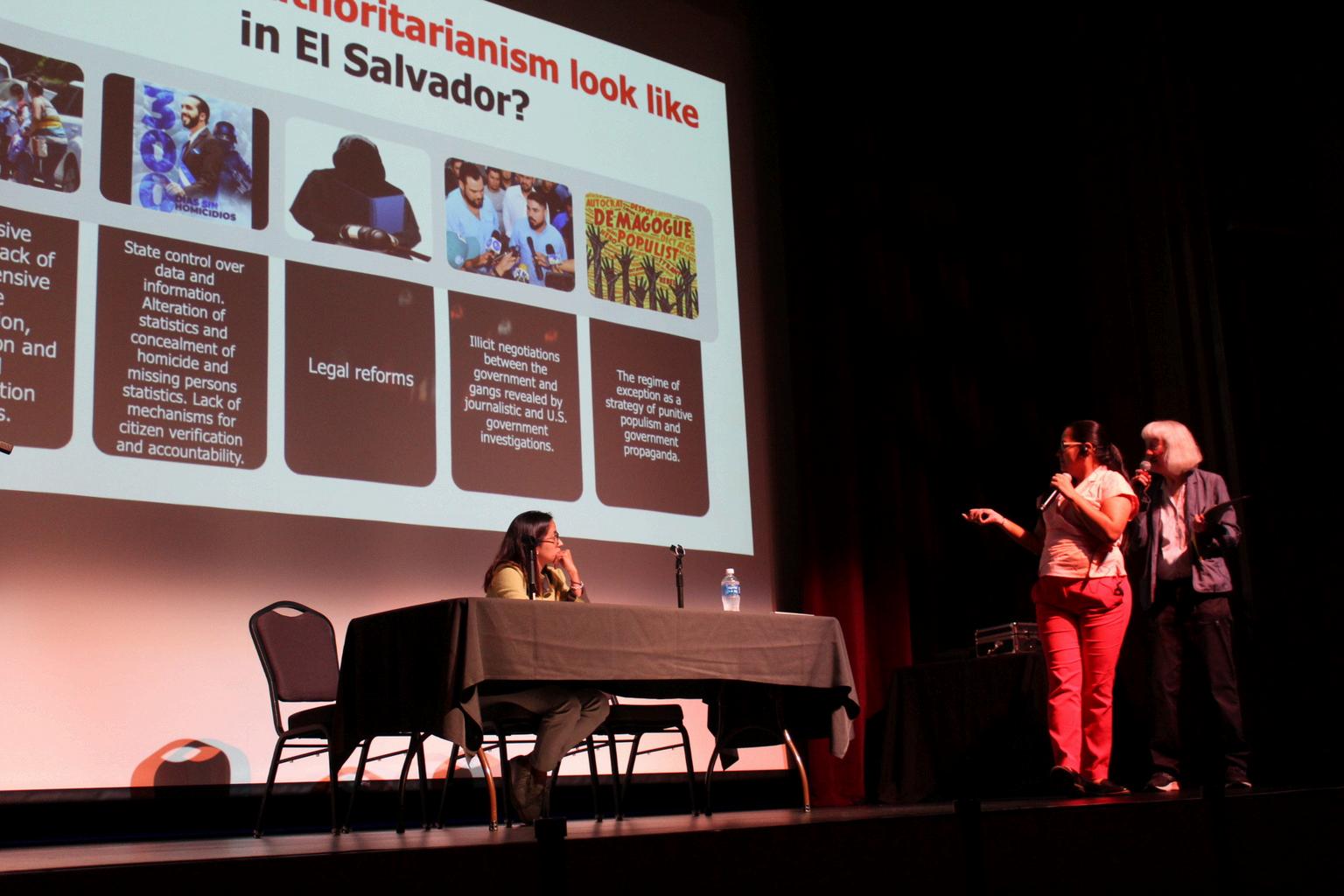

Wethankyouforyourcontinuedsupport oftheHumanRightsStudiesprogram.
HumanRightsStudies— AnnualReport2024


























